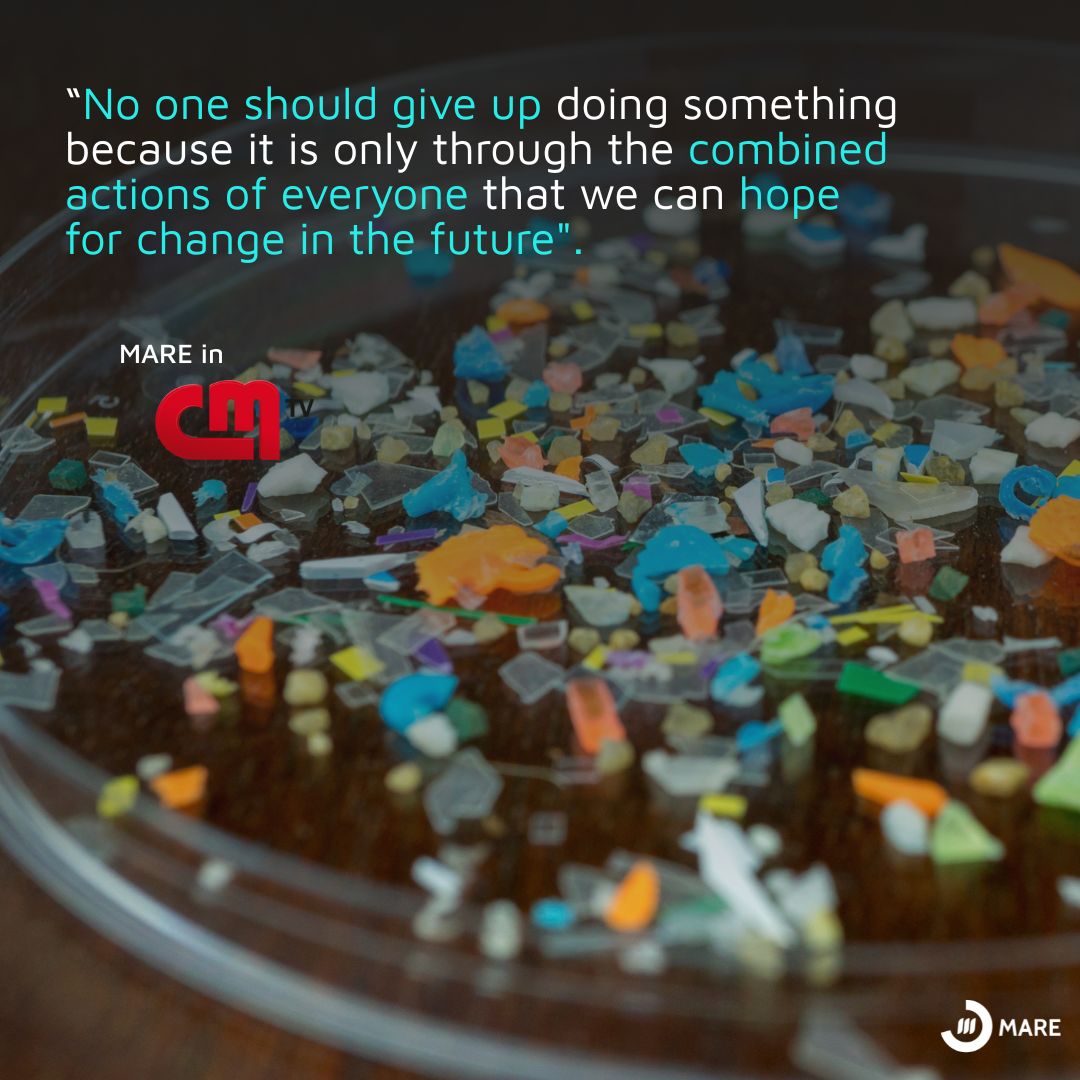MARE featured in Falar Global: Researchers warn of the invisible dangers of micro- and nanoplastic pollution
MARE – Center for Marine and Environmental Sciences – appeared on CMTV’s Falar Global program in an enlightening interview about the impacts of plastic pollution, especially micro- and nanoplastics, which silently invade ecosystems and threaten human health. Researchers Carla Silva and Paula Sobral, experts on the subject, were invited to explain how science and technology can help combat this global environmental problem. 
During the conversation, Carla Silva pointed out that the effects of plastic pollution go far beyond physical damage to organisms:
“We are still trying to understand the true effects, which have already been shown to be not only physical, but also cause other damage at the behavioral, molecular, cellular, and biochemical levels of ecosystems.”
The researcher warned of the presence of nanoplastics in unexpected places in the human body: “Nanoplastics have already been discovered in the placenta, the human brain, and even the testicles, and we know that this will have many more consequences for us, as human beings, in the future.”
Paula Sobral, in turn, emphasized that this is a problem that transcends the marine environment: “Plastic actually affects much more than marine life. In fact, plastic does not only exist in the sea, it exists on land, in the air we breathe, in the water we drink. Let's say that we are very exposed to this contamination.”
Segundo a investigadora, os nanoplásticos, ainda mais pequenos que os microplásticos, são invisíveis ao olho humano e penetram facilmente nas células, desencadeando processos inflamatórios e sendo associados a doenças como o cancro e
Cardiovascular problems: “The evidence shows that there are inflammatory processes, there is a causal link with some diseases (...). There is a great deal of concern, which has led many researchers to conduct more and more research on this topic.”
Despite advances in science and technology, Paula Sobral stressed that there are no simple or single solutions. “There is no single solution and no one can say ‘I have the solution’ at this point, because the solution cuts across many sectors of society and therefore requires concerted action.”
The researcher advocated a reduction in plastic production, criticizing the industry's resistance to this change. “We should immediately consider reducing plastic production, which is obviously not something the industry likes to hear.”
The need for sustainable alternatives and the role of the consumer were also addressed, with the expert emphasizing that consumer choice is conditioned by the options that the industry puts on the market. “It's a very difficult problem. We can have legislation, we can have science and technology (...) but in fact consumers also have to make the right choices, provided those choices exist, and it's not the consumer who chooses, it's the industry,” she said.
Paula Sobral concluded with a call for collective action: "Science and technology can help, but we need laws and public policies to guide us, and we need to increase the literacy of the population (...). It's difficult, but we need everyone's effort. No one should give up on doing something because it is only through everyone's collective actions that we can hope for change in the future."
MARE's presence at Falar Global served to reinforce the urgency of combating plastic pollution, drawing attention to the need for integrated solutions involving governments, industry, science, and citizens.
To access the interview, click HERE
Written by Patrícia Carvalho
